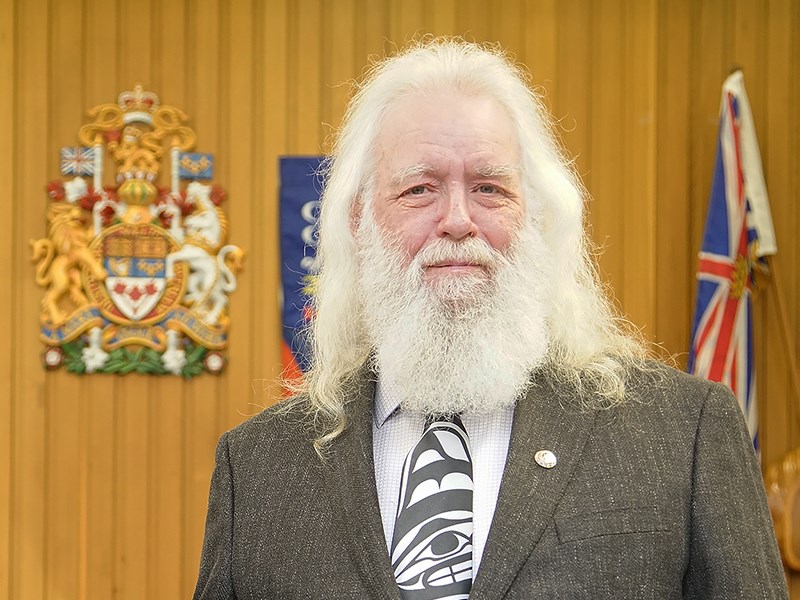Correspondence from a Powell River taxpayer has taken issue with city financial policy.
At a June committee of the whole meeting, councillors reviewed correspondence from Paul McMahon, who was critical of property taxes, and mentioned Tla’amin Nation’s claim to Catalyst Paper Tis’kwat lands, maintaining current city services and Powell River Community Forest contributions. McMahon titled his correspondence a once in 100-years financial calamity.
Councillor George Doubt, who chairs the city’s finance committee, said the current inflation is different than it was last year, but it’s not a one in a 100-year event, nor is it a one in a 50-year event.
“There have been other instances of inflation happening before and we have found ways to get through it,” said Doubt. “When the city discusses borrowing, our current chief financial officer and our previous one have always included the future possibilities of the interest rate risk going forward, when council determines whether there is sufficient revenue coming into the city to pay debt, what will happen if interest rises at the expected rates, and what will happen if it rises at great rates.
“Council, having read all that information, looks at it and makes decisions on the basis of those facts, determining we will be able to pay the debt as required.”
Doubt said on the question of Powell River Community Forest grants, because those are mentioned in McMahon’s correspondence, he wanted to point out that the community forest has done endless good for the city over the time it has been in existence. He said the 2021 dividend was $2.6 million, and of the $2.2 million in grants given away at a recent council meeting, $1.3 million were for additions, renovations and maintenance of city properties, which would otherwise have to be paid through tax money.
“The fact is we get those dividends and the fact those are not funds that have to be collected by city taxpayers is a good thing,” added Doubt.
Doubt said he is conscious of the letter sent by Tla’amin Nation hegus John Hackett regarding claiming entitlement to the Catalyst mill and Lot 450. He said the city will be keeping an eye on what goes on with the changes to the mill property and Tla’amin claims, whatever they might be.
Doubt said McMahon, in his correspondence, suggested council rethink the decision made in October 2021 to keep services the city provides at the same level as the previous year. He said the budget process for 2022 is complete, tax notices have been sent out to taxpayers, and the city knows what the revenue is going to be.
“Very soon it will be coming up again to make decisions on what level of services council wants to provide,” said Doubt. “We don’t have to do that today.”
Mayor Dave Formosa said the issue of Tla’amin and the mill site is not new.
“As many of you know, I was with the Tla’amin Nation for many years in their development corporation,” said Formosa. “This specific claim has been there since I was there. Under treaty, the federal and provincial governments promise they will not take away our private property. We’ve been promised by our provincial and federal governments that if there are issues of that kind, they will pay for it.
“As far as the mill site is concerned, I trust the federal and provincial governments will do the right thing. This is our tax base. It pays 17 to 20 per cent of our taxes. The province and federal government are not going to take away our tax base and give it away.”
Formosa said as far as property taxes are concerned, he knows they are high. He said he had recently stopped in Cloverdale and spoke with a business owner whose property taxes on a warehouse went up 30 per cent. Formosa said his brother has a home in White Rock and his taxes went up 10 to 12 per cent this year.
“I get it,” said Formosa. “I’m a taxpayer, too. But, it’s not just Powell River. I’m not making excuses, I’m just telling the truth of what I learned.”
Committee chair Cindy Elliott said the specific claims process a first nation may have a claim on are settled by the federal government, mainly with money, and the money has to be used to buy lands.
“Theoretically, Tla’amin could win some money for that specific claim and use the money to buy the land back,” said Elliott. “Should they wish to turn that into Tla’amin land, they would have to negotiate with the government a service agreement with the city that would be in lieu of taxes, and generally speaking, those service agreements are equivalent to the same they would pay for taxes.”
The committee voted to receive and file McMahon’s correspondence.



